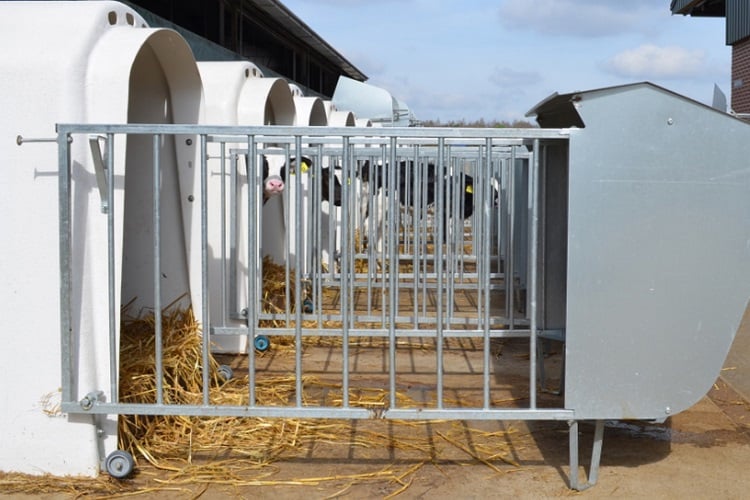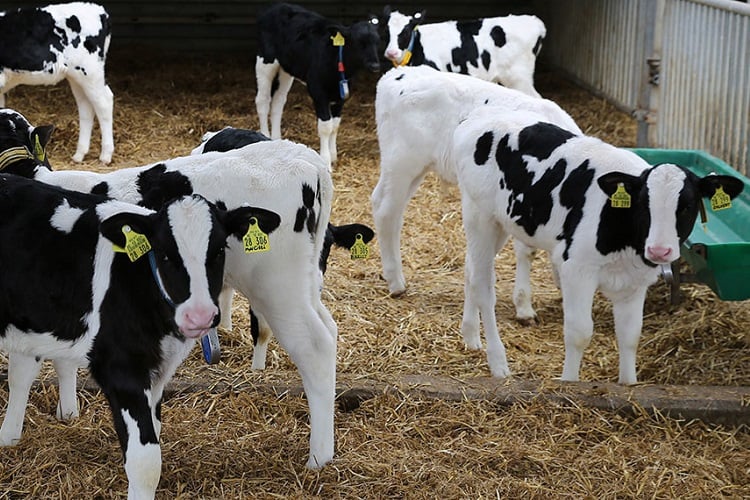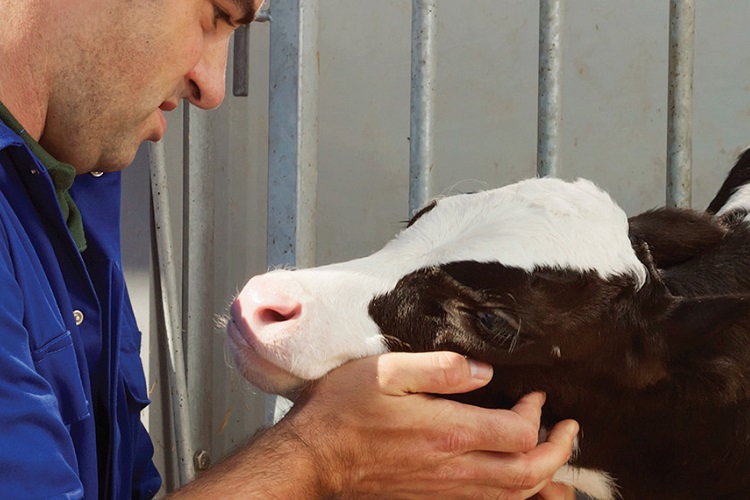- LifeStart
- Preweaning
Key takeaways from the research
-
When given ad libitum access to both solid feed and milk, dairy calves do not wean before six months of age.
-
When calves have ad libitum access to different feed types, there is a large individual variation in the intake of diet components.
-
Calves balance their diets in such a way that they achieve a remarkably constant ratio of protein to energy.
-
Understanding how calves choose feed components could help maximize voluntary intakes pre-weaning and prevent growth dips at weaning.
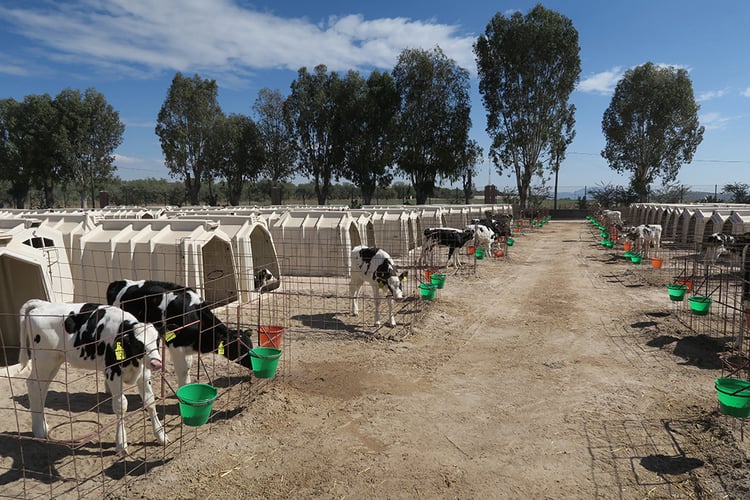
Ad libitum fed calves will regulate their feed intake correctly
If farmers are feeding higher planes of nutrition during the pre-weaning phase, it is important to fully understand the mechanism of voluntary intake regulation in young dairy calves. Digestive tract development may interfere with the action necessary for satiety to take hold.[1] While it has been shown that calves after weaning exhibit a large variation in feed preferences,[2] little research has been done into feed intake regulation in young calves provided both solid feed and milk during the pre-weaning phase.
In their paper entitled "Determinants of feed preferences and intake in calves,"[3] Berends et al. presented their findings with regard to long-term dietary preferences of young calves and how these preferences change over time. They also monitored the levels of intake of different feeds when calves were offered all feed ad libitum.
Study design
A group of 24 calves were given ad libitum access to milk replacer, water, long barley straw, long hay, chopped corn silage and pelleted starter concentrate, between the age of 17 days and 25 weeks. Intakes of each component for each calf were recorded for one full week, at both three and six months of age. Feed component energy and protein digestibility were assessed based on data in the literature. Results are presented in table1.
Results
Despite a very large variation in the intake level of the individual diet components, all calves achieved a remarkably constant digestible crude protein to digestible energy ratio. Calves self-regulate and select feeds that result in a balanced diet. Additionally, when provided unlimited access to both solid feed and milk components, calves do not wean themselves before six months of age.
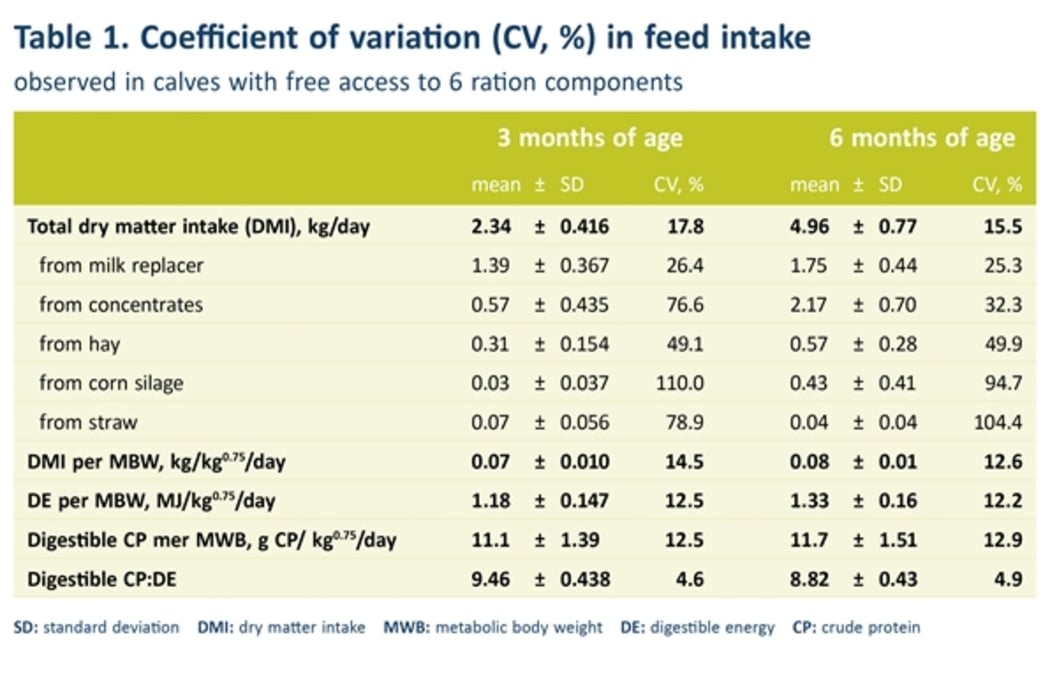
Conclusion
Young calves balance their own diets, even though they do so with a notable amount of variation in specific ingredients and feed types. Understanding this phenomenon can help farmers to maximise voluntary intake of feed in pre-weaned calves and to prevent a weaning dip.
References
[1] Allen, M.S. 1996. Physical constraints on voluntary intake of forages by ruminants. Journal of Animal Science 74: 3063 – 3075.
[2] Atwood, S.B., F.D. Provenza, R.D. Wiedmeier and R.E. Banner, 2001. Influence of free-choice vs mixed-ration diets on food intake and performance of fattening calves. Journal of Animal Science 79: 3034 – 3040.
[3] Berends, H., W.J.J. Gerrits, L.E. Webb, E.A.M. Bokkers and C.G. van Reenen, 2016. Determinants of feed preferences and intake in calves. Energy and protein metabolism and nutrition. - Wageningen Academic Publishers (EAAP publication 137) - ISBN 9789086862863 - p. 97 – 98.

